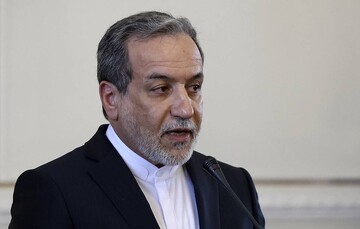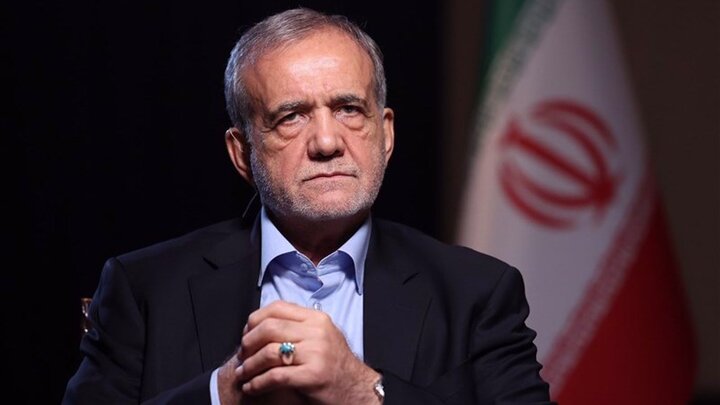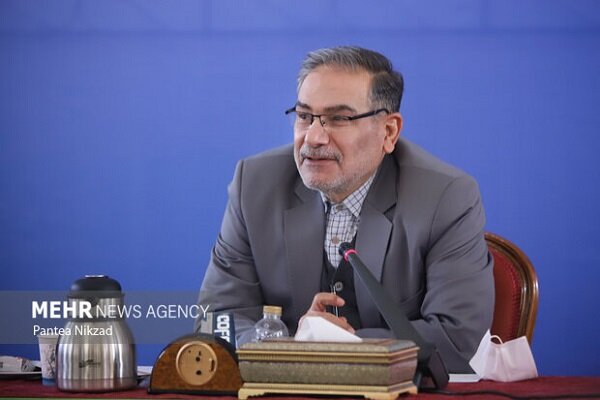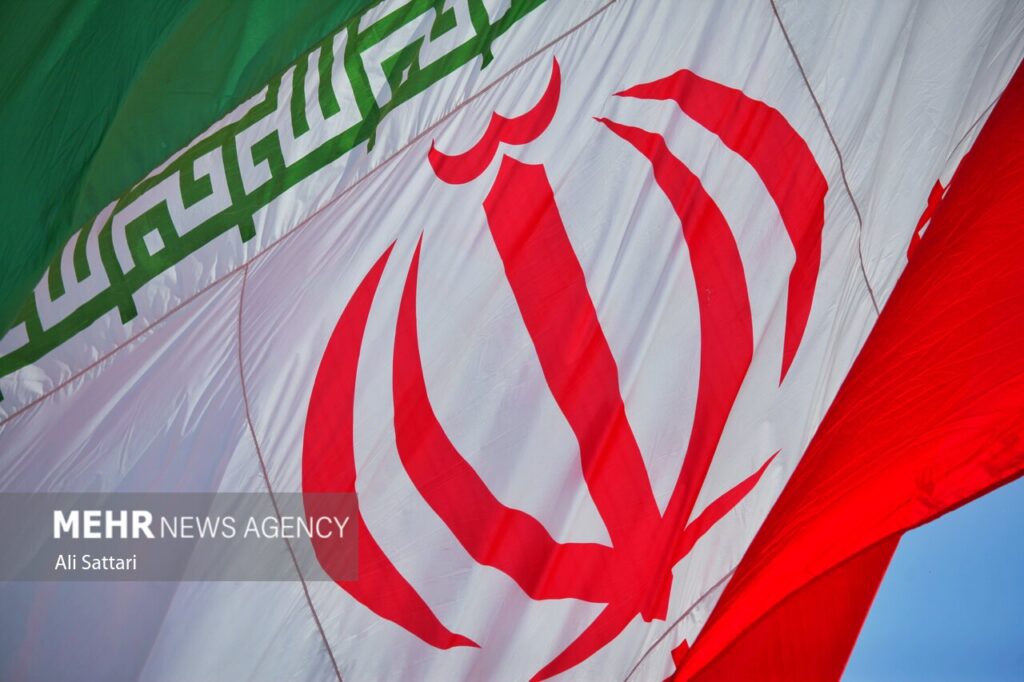In recent years, the US has repeatedly proven that it is not only unreliable when it comes to international agreements, but also uses hostile policies and unfair sanctions to put pressure on Iran. Due to unilateral withdrawal from the JCPOA and violations of international commitment to military threats and obvious attacks, Washington is trying to force Iran to submit. However, the Islamic Republic of Iran has repeatedly demonstrated that it will never surrender to foreign pressure and will not retreat from its legal rights. If the United States is seeking an agreement, we must accept that respecting the rights of the Iranian state is the only way to a diplomatic solution.
JCPOA: We unilaterally withdrawn agreement

The JCPOA, a deal reached after years of negotiations between Iran and the world powers, has proven Iran is free of issues with constructive and transparent engagement. However, it was the United States that unilaterally retracted the agreement under President Trump’s administration in 2018 and broke all of its commitments. The move demonstrated that the United States would not follow any agreement unless it serves its own interests.
Iran fully complied with its obligations under the Washington state JCPOA, reinstated sanctions with a coercion policy, and exploited economic pressures to make Iran subjugated. However, rather than giving in, Tehran has taken compensatory measures to reduce the JCPOA commitment, proving that it is standing firmly in hegemonic policies.
Message exchange between Washington and Tehran
After leaving the JCPOA, the Trump administration pursued the biggest pressure policy aimed at crippling Iran. However, the policy was designed to make Iran on his knees, and ultimately failed, only deepening his distrust of the United States. The continued threats, crippling sanctions, assassination of senior Iranian figures and support for rebel groups were just examples of Washington’s hostile actions against Tehran.
However, Iran has never retreated in the face of a threat. Iranian officials have repeatedly emphasized that if the US is seeking negotiations, they must learn to speak to the Iranian state with respect and not threats.

In early March, US President Donald Trump said he had sent a letter to Tehran, saying he wanted Iran to agree to hold talks.
Trump sent a letter to its leader, claiming he wanted to negotiate a nuclear deal with Iran. “I said I would like you to negotiate because it’s much better for Iran,” Trump insisted in an interview with the Fox Business Network broadcast.
A few days later, Anwar Gargash, a diplomatic advisor to the President of the United Arab Emirates, and his accompanying Emirati delegation, handed over Trump’s letter to Iran during a meeting with Iranian Foreign Minister Abbas Aragut. The text of the Trump letter has not yet been revealed.
A day after receiving the letter from the Emirati delegation, Araguchi stressed that Tehran would not meet in person with the US unless Washington ensures free consultations from the threat. An Iranian diplomat said, “Repeated Tehran’s will to negotiate under the principles of honor, wisdom and convenience.”

On March 28, Iranian diplomats said the Islamic Republic had sent the response to a letter from President Donald Trump through Oman. He reaffirmed Iran’s solid policy of refusing to negotiate directly under the greatest pressure and military threats, stressing that although the in person talks are off the table, indirect negotiations are similar to those held under previous administrations.
Meanwhile, in a telephone conversation with British counterpart David Lamy shortly after Iran responded to the US letter, Aragut reiterated Tehran’s willingness to engage diplomatically on a peaceful nuclear program, but emphasized that direct consultations under “maximum pressure” and “military threats” are meaningless.

Commenting on the development on March 30th, Iranian President Masoud Pezeshkian confirmed that the doors for indirect talks with Washington are open.
He explicitly rejected the possibility of direct negotiations with the US, but made it clear that the option of indirect consultations remains on the table.
“As mentioned previously, Iran has never shut down its channels of indirect communication. In its response, Iran does not avoid negotiations, but rather reaffirms that it has been a repeated violation of the agreements and commitments that have created obstacles to this path.”
He emphasized that if the US attempts to restore negotiations, it must first rebuild trust by correcting past violations, adding that it is the American approach to determine the continuation of the negotiation channel.

Meanwhile, Ali Shamhani, a senior adviser to the leader of the Islamic Revolution, emphasized that the US has consistently pursued a multi-layered strategy against Iran since the Islamic Revolution in 1979.
“Since the beginning of the Islamic Revolution, the United States has used a combined package of Iran that includes military threats, psychological warfare, interference in Iran’s internal affairs and mobilisation of so-called allies. This is nothing new,” he said.
He emphasized that Iran is fully aware of this approach and does not consider it an unexpected tactic.
Shamhani emphasized Iran’s resilience in the face of external pressure, saying that the state would never succumb to the threat.
Shamkani further reveals that Iran has been engaged in indirect dialogue with the United States for a long time, and the letter repeated Tehran’s preparation for such a discussion under certain conditions.
“Iran has always had indirect consultations with the United States, and this letter reaffirms that Iran is being prepared for indirect negotiations, but only if the discussion is based on an equal footing.
The US chooses threat to diplomacy

On the same day Iran is ready to engage in indirect talks with the United States, Donald Trump took a hostile position, warning of bombings and new sanctions against Iran, and showed Washington’s preference for threats to diplomatic relations.
In a phone interview with NBC News on Sunday, Trump confirmed that US and Iranian officials were in touch but refused to provide details. Instead, he poses an adversarial threat: “If they don’t make a deal, there will be bombing.”
He further warned that if negotiations fail, they would restore secondary sanctions similar to those imposed four years ago.
Trump’s threat has led to a strong response from senior Iranian officials.

Ayatollah Seiyed Ali Khamenei, the leader of the Islamic Revolution, emphasizes that if their enemies commit evil acts against Iran, they will undoubtedly receive a powerful and mutual response.
Ayatollah Seyyed Ali Khamenei led this year’s Eid al-Fitr prayers and made a speech at the Grand Mosala Mosque in Tehran.
He emphasized that if their enemies commit evil against Iran, they will undoubtedly be hit hard and mutually behaviour. “And if they try to create agitation within the country, the (Iranian) state itself will give them (appropriate) answers.”
He stressed that Iran’s position remains the same as US hostility towards Iran.

“The open threat of “bombing” by the head of state against Iran is shocking to the essence of international peace and security,” Iran’s Foreign Ministry spokesman Esmaeir Bhagihai wrote in X.
“It violates the UN Charter and betrays safeguards under the IAEA.”
“Violence creates violence, peace creates peace. The United States can choose a course…; and acknowledge the outcome…” he emphasized.

Brigadier General Amir Ali Hajizadeh, commander of the IRGC’s Aerospace Division, warned that US forces in the area were sitting in “glass houses” and should avoid “throwing stones at others.”
“Americans have 10 (military) bases in the area, particularly around Iran, and there are 50,000 troops based there,” Hajizadeh said.
“This means they’re sitting in a glass house, and when they’re sitting in a glass house, they don’t throw stones at other people.”
Iran’s choice in the event of a US military attack
If the US is thinking about military action, we must understand that Iran will not remain idle. The Islamic Republic has multiple options to respond to any attack, with its military power, missile capabilities, regional presence, and allies. Nor can it be ruled out that Iran could close Hormuz’s straight in that case.

Commander Alireza Tangsiri, Navy Commander of the Islamic Revolutionary Guard (IRGC), reaffirmed Iran’s military capabilities, warned of threats, and refused to negotiate over missile weapons.
IRGC Navy Commander Admiral Alireza Tangsiri made a strong statement about Iran’s defensive stance, emphasizing that an attack on Iran would fulfill a critical response.
Tangsiri has firmly rejected the possibility that Iran will be involved in negotiations regarding the assistance of missile arsenals or resistance groups.
“Iran will not negotiate its missile or resistance front capabilities.”
He made it clear that Iran wanted peaceful relations with its neighbors, ensuring that Tehran poses no threat to other regional countries.
“We are always expanding our friendships to countries in this region. As Muslims, we pose no threat to our neighbors,” he emphasized.
While saying Iran is not intending to start a war, Tangusiri stressed that the attack on Iran’s interests and its people would be filled with a solid response.
“We don’t want war, we don’t want it. But if our enemy tries to hurt our interests or attack our people, they must know that we will respond.”
Tangsiri made it clear that although the decision is on the possibility of blocking the straits of Hormuz, his forces are responsible for carrying out such orders if given.
“It is not my responsibility to decide whether to close the Strait of Hormuz or not. It is in the hands of senior officials. But if ordered, it is my duty to execute it.”
Tangsiri said Iran has the ability to hit enemy bases everywhere, adding that wherever the attack is launched in Iran will be targeted in return.
“We have the ability to hit every enemy base wherever we are. If an attack is launched against us from a geographical location, we will fight back at that exact location.”
“No one can attack us and run away. Even if we have to chase the Gulf of Mexico, we will,” he added.
In his final remarks, Tangusiri made it clear that Iran would not succumb to pressure or threat. “We won’t allow Trump to impose his will on us.”
Iran has demonstrated that if threatened, the response is quick, decisive and induces regret.
Iran’s nuclear program: peaceful and legal
Despite unfounded Western claims, Iran’s nuclear programme has always been under the supervision of the International Atomic Energy Agency (IAEA) and is completely peaceful. The Zionist regime owns hundreds of nuclear warheads and is not even a signatory to the NPT, but the US has falsely argued that Iran’s nuclear activity threatens world peace.
Iran’s Islamic Republic argues that the peaceful use of nuclear energy is an intransitable right in any country.
It says its nuclear activity is all transparent and under international surveillance, with the US simply using excuses to put further pressure on Iran.
Iran has repeatedly stated that if Washington seeks an agreement, it must respect Iran’s rights and abandon hegemonic policies.
What is clear is that US policy towards Iran is based on delusion and rog arrogance. However, Iranian officials have stressed many times that Washington must understand that it will not retreat from its legal rights under pressure that the Islamic Republic is a threat, sanctions or economic war.
Reported by Mohaddeseh Pakravan

